Seduction Stories
In February 2017, I embarked on the production of Seduction Stories, an Otome Game project of mine. Fast forward two years, and this title was released by Butokaï, a company I had founded, right at the height of the mobile romance game bubble.
Position
Tasks
- CEO, Co-founder, Creator
- Entrepreneurship (SASU Company)
- Project Manager
- Scriptwriting
- Communication strategy and content
Come June 10th, 2019, Seduction Stories debuted in the French app stores. This was a self-produced game, a result of a close collaboration with Alexis Bauchu, a developer. Two and a half years of hard graft went into what I genuinely believe is the most magnificent of all video game genres: the Otome game. Essentially, it’s a text-based role-playing game where the player assumes the role of a young woman interacting and flirting with a range of handsome men.
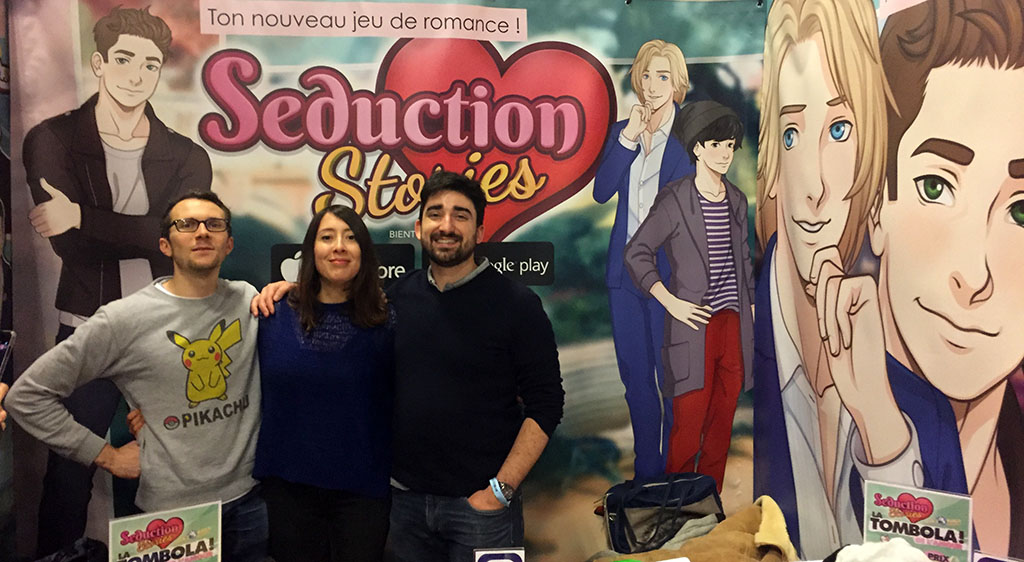
A True Passion
Some might think that launching an Otome Game in 2017 was purely opportunistic. And certainly, there was plenty of opportunism in the Otome games landscape during and post our game’s development. My introduction to the Otome world was unique. While discovering some titles showcased at Japan Expo in 2016, I also found… a job. A French individual at the Accela studio booth was both surprised and thrilled when I pitched my services as a video game scriptwriter. After a few email exchanges, I started working on Les Princes de la Nuit.
This was my gateway into a sprawling and chaotic universe. A hidden world where countless women engaged, often in the shadows, with romantic fantasies involving dashing men that occasionally veered into the erotic. All of this happening unbeknownst to the mainstream gaming world. I got acquainted with titles like Amour Sucré, Is It Love, as well as translations from Japanese studios like Okko and Voltage. These titles had an untouched and, to some extent, risqué appeal.
While I was aware that some of my former colleagues were growing restless, and others were contemplating sabbaticals, I had an idea. Even as I was still at Gameloft working on a game with a romantic twist, I pondered about assembling a team to create an Otome game set in Paris.
Development Challenges
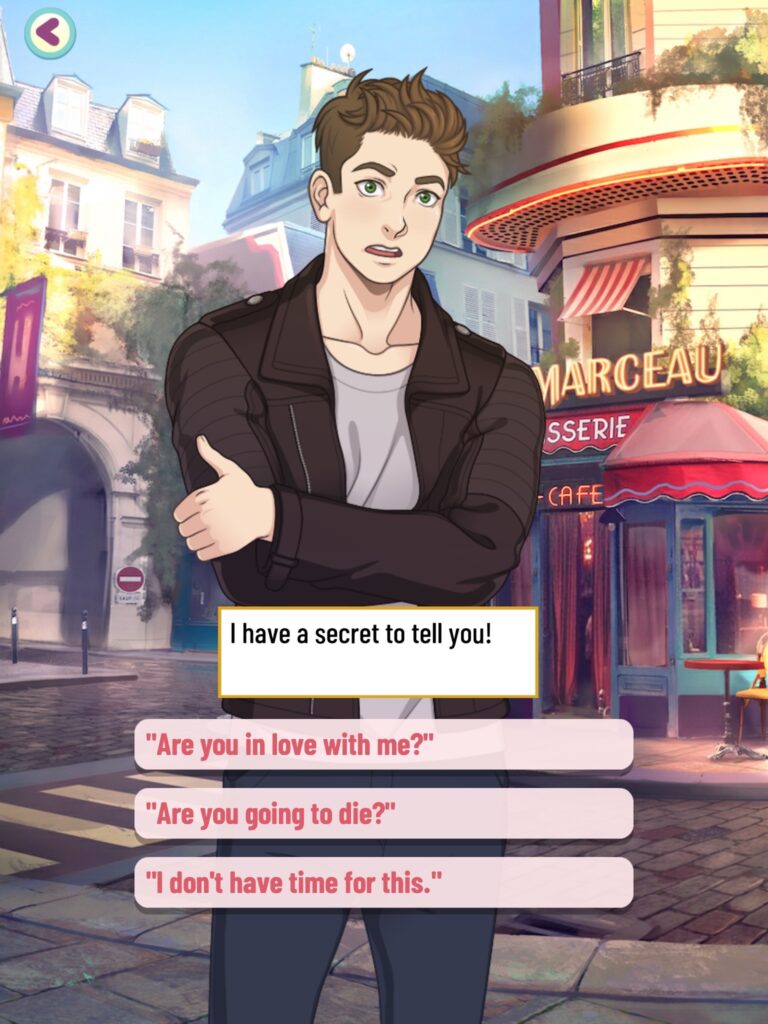
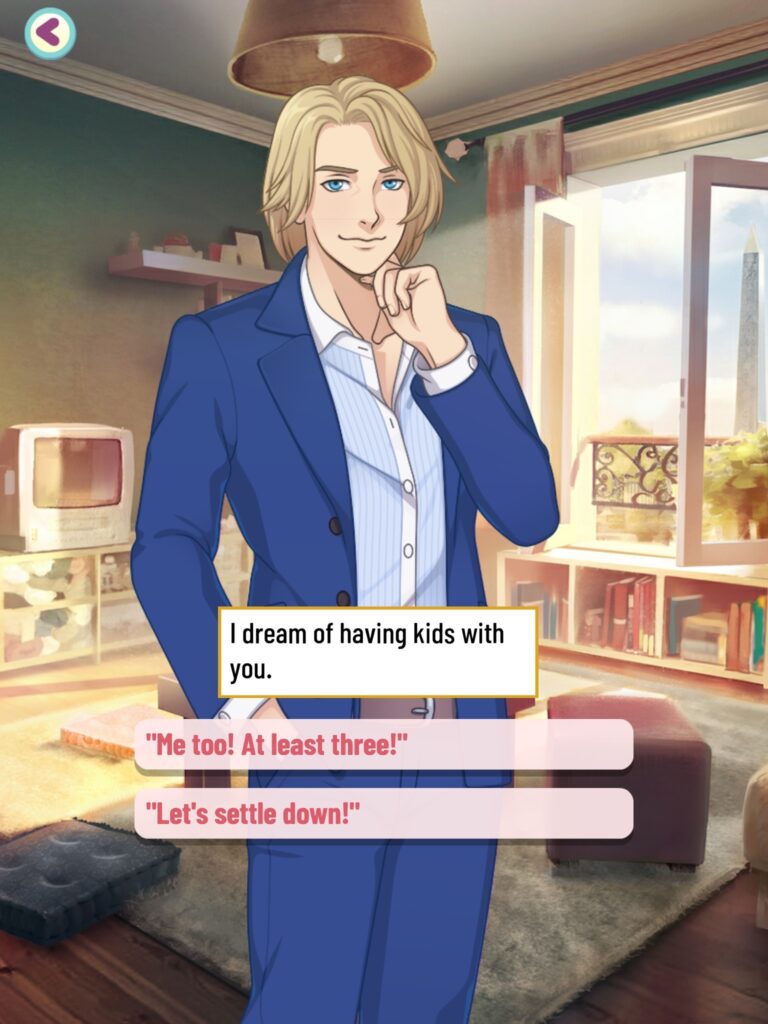
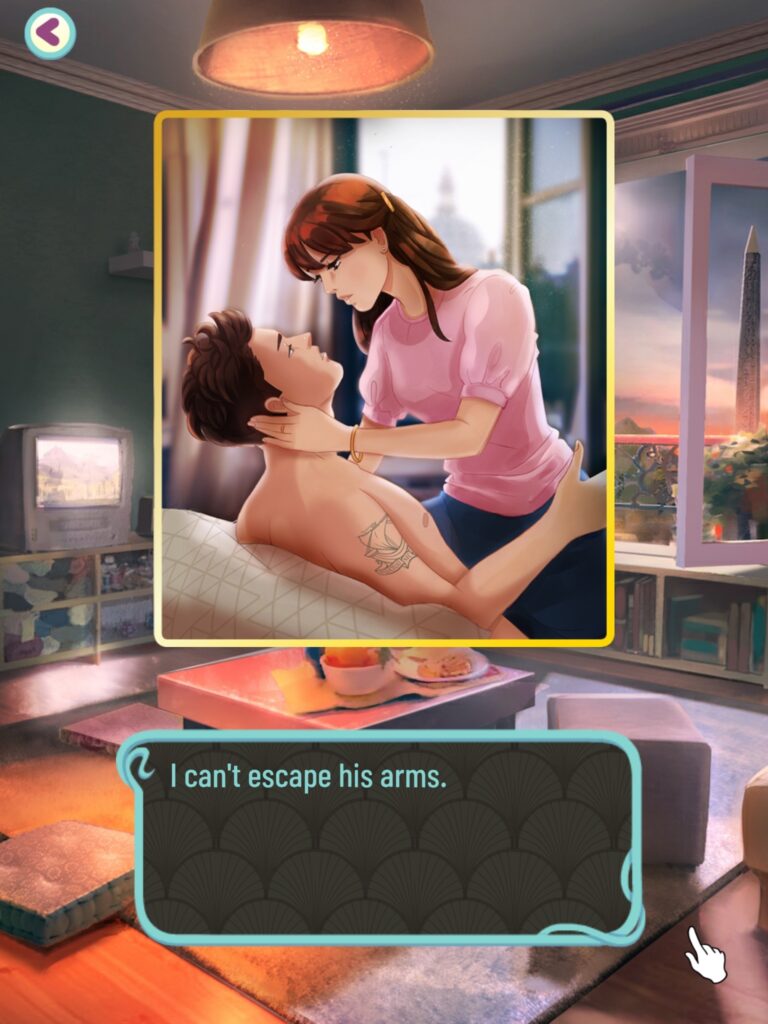
The story’s all too familiar. Game development is a complex beast, and every released video game is a small wonder. Money was tight. Unemployment benefits kept us afloat, and nearing the end, I had to take up a side job at a stationery chain just to get by.
We had a clear direction, and the end product closely resembled our initial vision – a success in its own right.

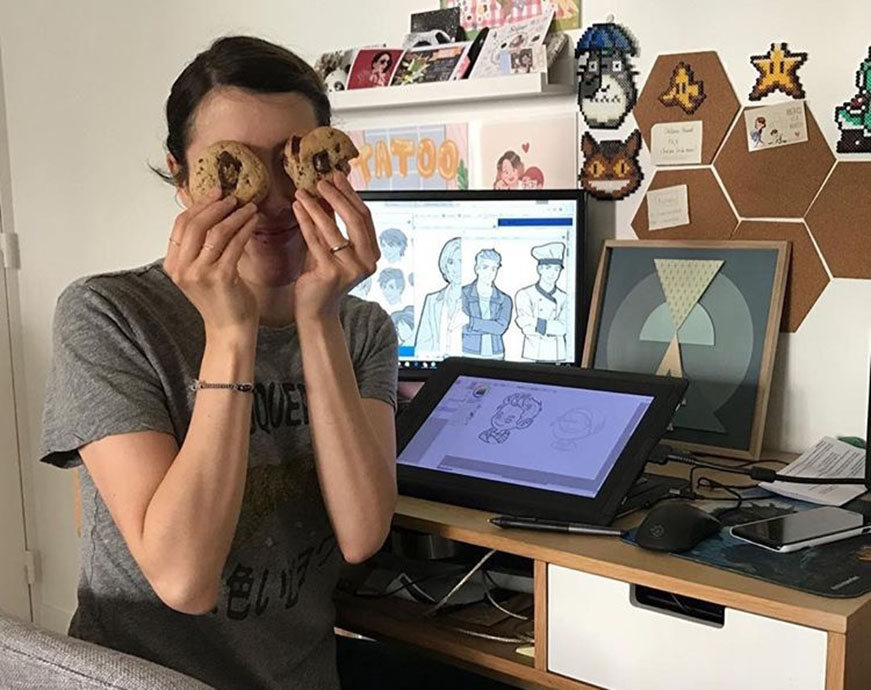
However, such challenging projects always demand far more than initially anticipated. The sheer volume of work Alexis and I invested in Seduction Stories was immense. We came out of it drained.
Drained, and quite honestly, unrewarded for our efforts. Seduction Stories never really turned a profit. Player retention was almost nonexistent, and very few moved on to in-game purchases.
In short, it didn’t pan out.
A Silver Lining
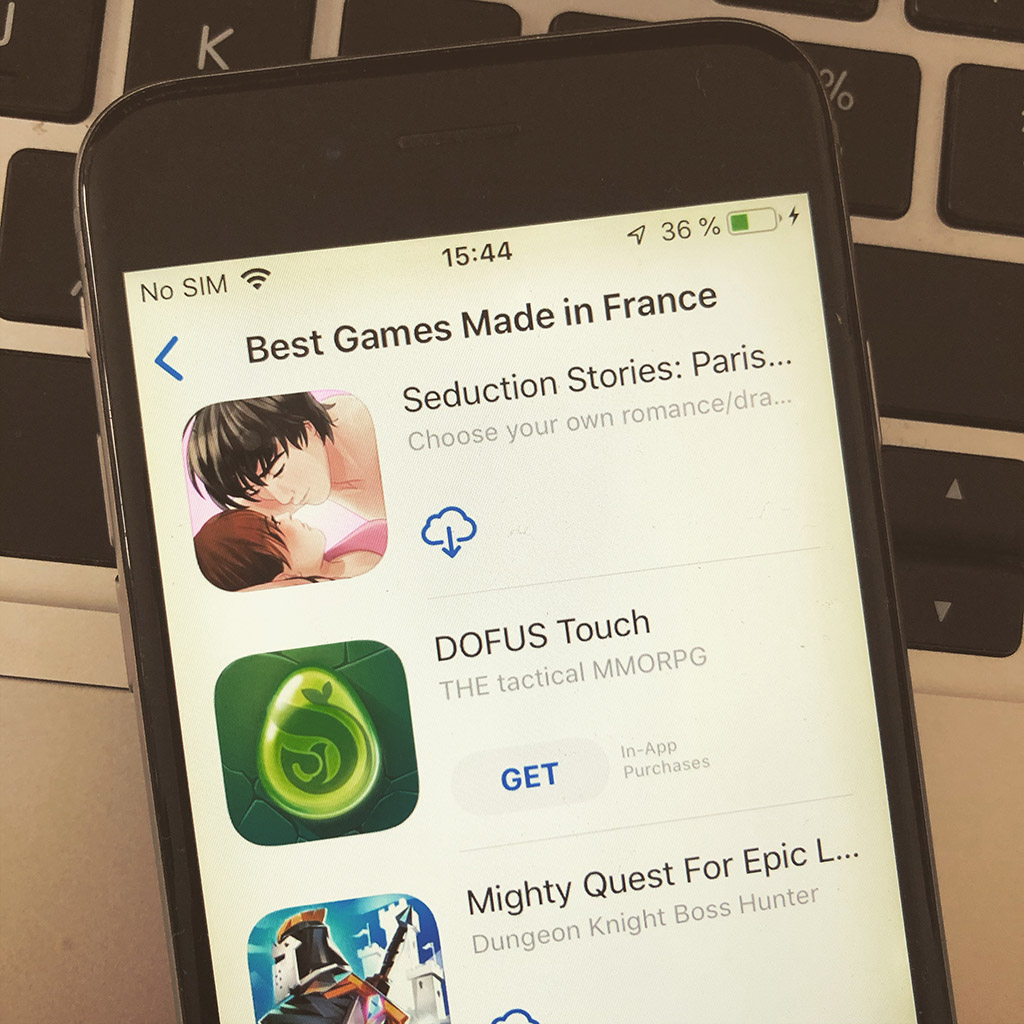
Despite everything Seduction Stories had going for it, it didn’t click with audiences. Sure, it looked better than most competitors. Only Ubisoft Paris Mobile’s Paris City Of Love could boast better visuals. Studio 1492 and their Is It Love titles were the talk of the town, even if their explicit content raised eyebrows. New competitors sprouted from all directions, like Nanobit. And then there were the American juggernauts, like Episode and Choices, which dominated the romance game narrative across the West.
Amidst this “otome-mania”, Apple France unexpectedly and warmly embraced our press release. They promptly invited me to their Station F space. The interactions were positive and led to tangible outcomes. Seduction Stories got featured twice under “Best Games Made in France” in 2018 and 2019 and also appeared multiple times under the “Fann in love with an otome game” category.
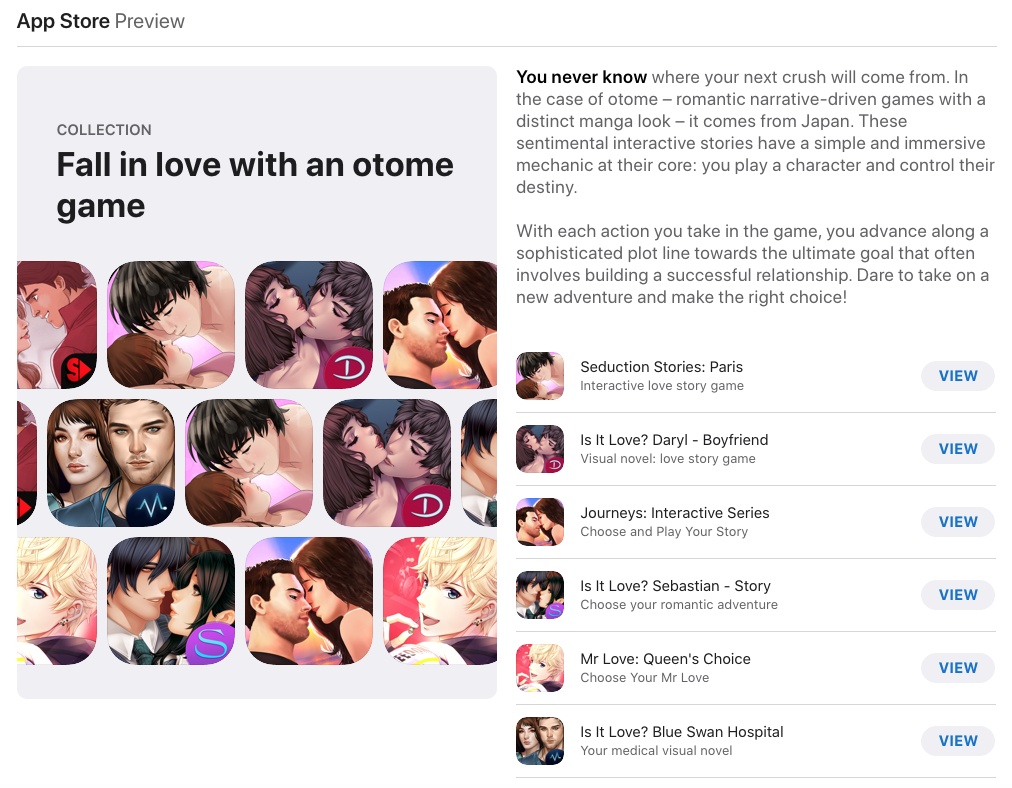
Limited Options, No Way Out
We were so bogged down by disappointing numbers that we failed to savor this recognition. Even with such features, our numbers didn’t improve. The much-touted “critical success” made no difference.
Even Plugin Digital, our publisher on Google, couldn’t get our game off the ground despite a significant marketing spend. With heavy hearts, we decided to wrap things up. Our project couldn’t even finance its store presence.
A Bittersweet Epilogue
Closing my company and pulling the game from the stores, I had interviews with Ubisoft Paris Mobile. At the time, they had acquired 1492 (Is It Love), our primary competitor. These interviews were lengthy and a tad strenuous. Months later, Ubisoft shut down 1492 due to its dwindling performance. The Otome game frenzy had waned.
It made me wonder if Seduction Stories had launched at the worst possible time when the market was flooded with offerings. Could a quaint game set in Paris with a social dimension stand out amidst the glut of titles?
A conversation with Christian Mahnke, CEO of Earreality, after his company’s shutdown, was somewhat consoling. He shared some gloomy performance figures from the romance game genre in recent years.
Self-reflection
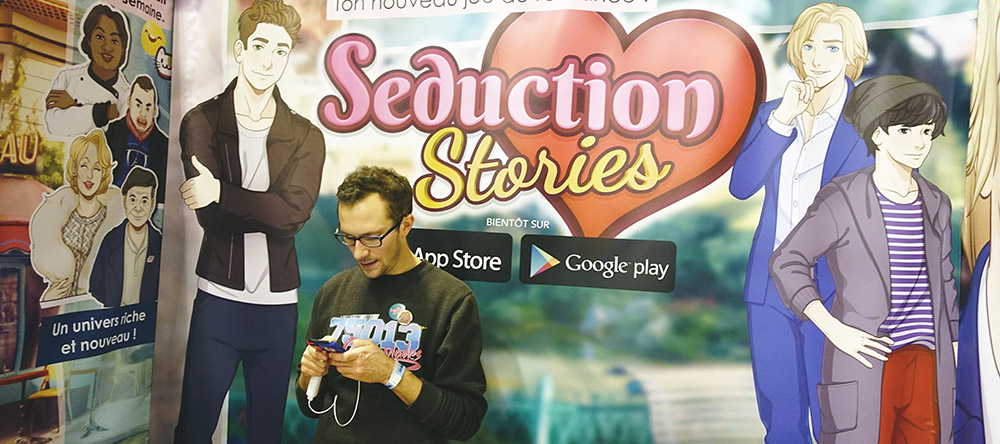
I could blame our game’s failure on market dynamics or the lack of huge marketing budgets at launch. These reasons might be valid, but they don’t tell the whole story. In truth, Seduction Stories didn’t resonate because it lacked appeal.
A look at game streams is revealing. Players found it visually appealing, but overall, the experience felt like a missed connection. It lacked a unique hook, a dreamy twist, something extraordinary.
I erred by attempting to mimic the ordinary, offering a sense of familiarity and connection. While some players did feel connected to the characters and the world, the vast majority didn’t. My narrative was too conventional, my social commentary too overt. It lacked that transformative moment where ordinary life gets overtaken by overpowering romance – something other Otome titles nailed.
In retrospect, if I had another chance, I’d rewrite the game in an entirely different way.
Cherished Memories
Let’s set aside the negativity for a moment. Launching Seduction Stories was an achievement in itself, and we’re immensely proud of it. A fellow developer, who’s been working on a video game for years as I write this, once made a comment I’ll never forget: “Your game might not have taken off, but you managed to never fall out with your team. That’s an achievement. I haven’t even launched my project yet, and I’ve already had conflicts with so many people.”
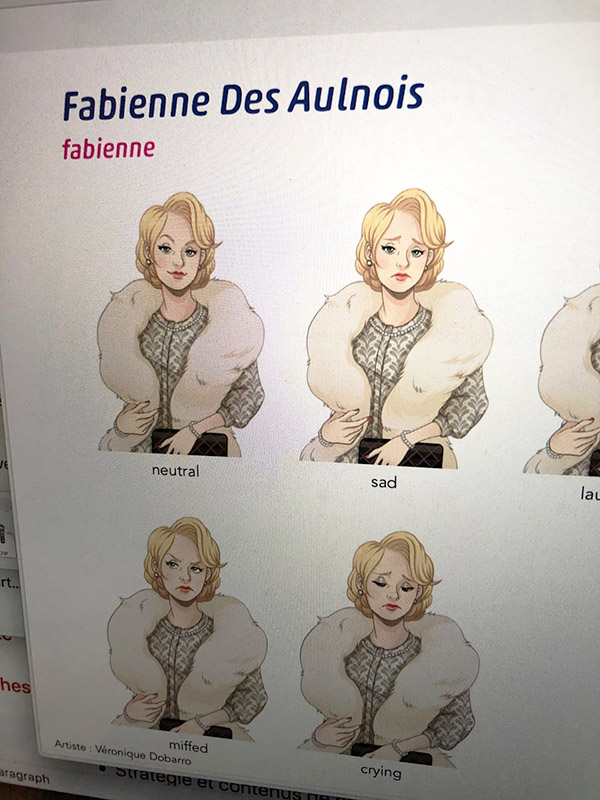
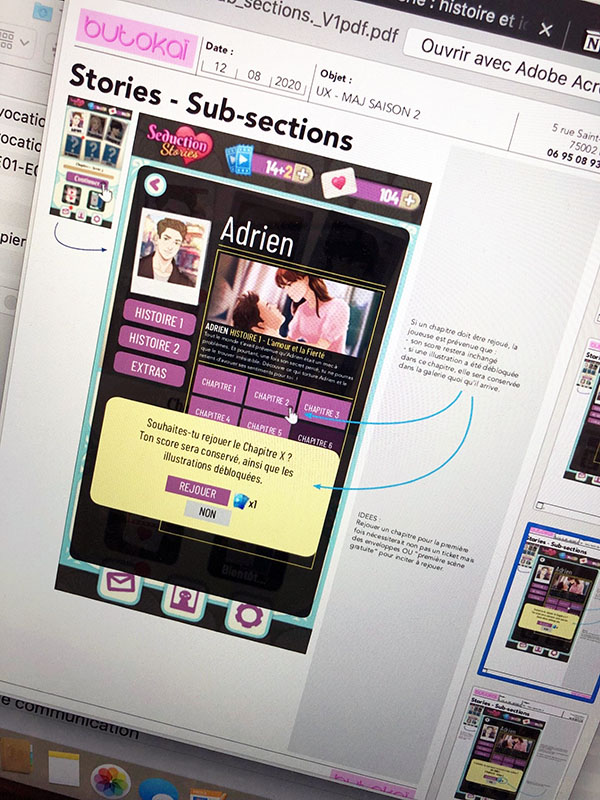
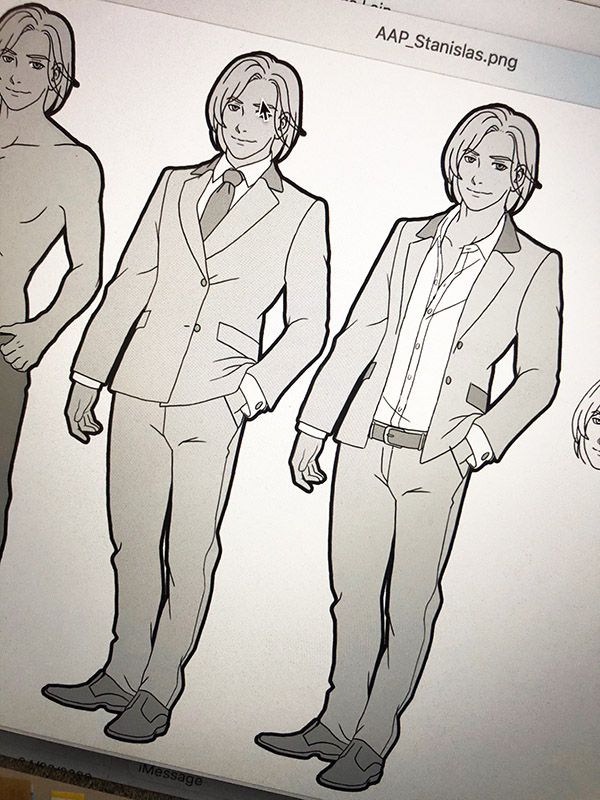
It’s true. Despite the hurdles and the game’s commercial setback, I’ve managed to maintain friendships and camaraderies with everyone involved. We all hold onto the unique memory of the game’s release, and I’m deeply grateful to everyone who contributed. Friends who worked on the game often recall the good times, memories of the freedom we had to create the game we truly wanted.
I also rekindled some friendships that had drifted apart, like with Jean-Philippe and his outstanding music. I’ve received support from unexpected quarters, and I owe a huge debt of gratitude to Alexis, Véro, Laetitia, Robin, Caro, Pauline, Julie, Robin, Nivelle, and perhaps others I might be forgetting…
